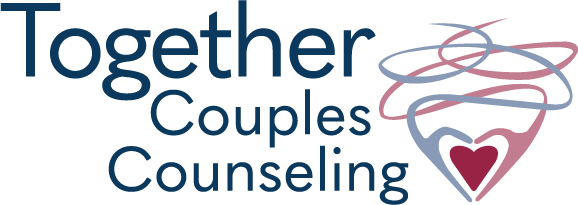In romantic relationships, “unconditional love” often appears as an ideal. However, applying this notion to adult intimate relationships is misleading and harmful. Unconditional love belongs in parent-child relationships, where it provides essential security and support as a child grows and parents provide nurturing, guidance, limits and love.
In romantic partnerships, unconditional love sets up couples for harmful expectations, lack of accountability, unclear boundaries, and emotional damage.
Unconditional Love in Parent-Child Relationships
Unconditional love in parent-child relationships is crucial. Parents are biologically programmed to protect and nurture their children, ensuring their survival and development. This love is unwavering, regardless of the child’s behavior or circumstances. It provides children with security and belonging, essential for their growth into healthy adults. Children need to feel loved and accepted without conditions to connect them to their inherent self-worth and to develop emotional resilience.
The Dangers of Unconditional Love in Romantic Relationships
Applying unconditional love to romantic relationships leads to significant problems. Romantic relationships thrive on mutual respect, shared values, accountability, vulnerability, bravery, and wisdom. Expecting unconditional love fosters a lack of accountability, a power imbalance, unrealistic expectations, and emotional dependency.
Unrealistic Expectations
Expecting unconditional love in a romantic relationship leads to the belief that one’s partner should accept all behaviors, no matter how harmful. This results in tolerating abuse, neglect, or disrespect, undermining the foundation of mutual respect and healthy boundaries necessary for a successful partnership. Every adult relationship should have a bottom line of what will be tolerated and what will not. Without this limit, couples languish in stable misery, tolerating disrespect, neglect, and unhappiness at best and tolerating abuse at worst.
Accountability
A key trait of healthy relationships is trust. Part of trust is knowing that your partner will hold themselves accountable for their actions and how they impact you. Without accountability, there cannot be genuine trust. Unconditional love diminishes the essential need for accountability.
Emotional Dependency
Unconditional love in romantic relationships fosters emotional dependency, where one partner relies entirely on the other for validation and self-worth. This dynamic places undue pressure on one partner to constantly provide reassurance and support. Over time, this leads to burnout and resentment, eroding the relationship’s stability and satisfaction.
A Story of Unconditional Love Gone Wrong: Sarah and Mark’s Journey
Sarah and Mark were college sweethearts who believed their love was indestructible. They often talked about their relationship being founded on unconditional love, promising to stand by each other no matter what. However, this idealistic view soon faced real-world challenges.
In the early years of their marriage, Sarah and Mark’s relationship seemed perfect. They were supportive and attentive. However, as time passed, cracks began to appear. Mark struggled with a demanding job, and the stress affected his behavior. He became irritable and started drinking more frequently to cope. Sarah, holding onto their promise of unconditional love, believed she needed to support him without question.
Mark’s drinking escalated, leading to frequent arguments and emotional outbursts. He began coming home late and missing important family events. Despite this, Sarah reminded herself of their vow of unconditional love. She tolerated his behavior, hoping her patience and support would eventually help him change. Instead of confronting the issues directly, she internalized her pain, believing it was her duty to endure.
Years passed, and Mark’s behavior continued to deteriorate. His drinking led to financial problems and further strained their relationship. Sarah’s friends and family grew concerned, urging her to set boundaries and seek help. But Sarah, clinging to the notion of unconditional love, resisted. She feared that setting conditions would mean she was failing as a partner.
Eventually, the situation reached a breaking point. One night, after a heated argument, Mark left and didn’t return for several days. This incident forced Sarah to confront the reality of their situation. She realized her unwavering tolerance had enabled Mark’s destructive behavior and eroded her self-worth and happiness.
With the help of a therapist, Sarah understood the difference between unconditional love in a parent-child relationship and the conditional love necessary for a healthy romantic partnership. She learned that love in an adult relationship should include mutual respect, boundaries, and accountability. Sarah candidly talked with Mark, expressing her concerns and the need for change. She made it clear that while she loved him, her love did not mean she was willing to tolerate his destructive behavior. She found her bottom line.
This moment of honesty and the setting of firm boundaries became a turning point for Mark. He realized the gravity of his actions and agreed to seek help for his drinking problem. With therapy and mutual effort, Sarah and Mark started rebuilding their relationship on a foundation of respect and accountability. It wasn’t an easy journey, but it was a healthier and more realistic one.
Embracing Conditional Love in Romantic Relationships
Healthy romantic relationships are built on conditional love, where partners love and support each other within a framework of loving limits, mutual respect, accountability, and shared values. This love acknowledges that while feelings may be deep and enduring, they are influenced by how partners treat each other and fulfill each other’s needs.
Mutual Respect and Boundaries
Conditional love demands clear boundaries and mutual respect. Partners understand that certain behaviors are unacceptable and that love does not excuse disrespect or harm. By setting and respecting boundaries, couples create a safe and supportive environment where both individuals can thrive. As Brene Brown says, “Clear is kind. Unclear is unkind.”
Growth and Adaptation
Conditional love allows for growth and adaptation. Partners reassess and renegotiate their needs and expectations as individuals and circumstances change. This flexibility is crucial for maintaining a healthy, evolving relationship that withstands life’s challenges.
Accountability and Responsibility
In a relationship based on conditional love, both partners are accountable for their actions and their impact on the relationship. This fosters responsibility and encourages open communication and problem-solving. When partners understand that their actions have consequences, they work together to address issues and improve their relationship.
For Better or Worse?
Sarah and Mark’s story illustrates the dangers of unconditional love in a romantic relationship. Expecting unconditional acceptance of all behaviors enables harmful actions and sacrifices individual well-being. For better or worse requires a nuanced view, not an all-or-nothing view.
A relationship built on conditional love, which includes boundaries and mutual respect, fosters growth and resilience. Understanding this distinction will help you navigate the complexities of long-term partnerships in a more relational and effective way, leading to healthier and more fulfilling lives together.





